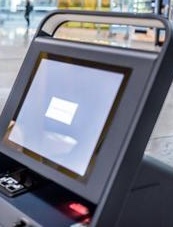 Welcome to the Alice in Wonderland world of HUD reading the FHA. We can start with a quote from the novel by Lewis Carroll that sums up the problem:
Welcome to the Alice in Wonderland world of HUD reading the FHA. We can start with a quote from the novel by Lewis Carroll that sums up the problem:
“When I use a word,” Humpty Dumpty said, in rather a scornful tone, “it means just what I choose it to mean—neither more nor less.” “The question is,” said Alice, “whether you can make words mean so many different things.” “The question is,” said Humpty Dumpty, “which is to be master—that’s all.
Like Humpty Dumpty, HUD believes it is the master of the word “handicap.” Among the many lessons to be learned from HUD’s recent charge of discrimination against the Housing Authority of Grapevine,¹ (including the risk of pulling the trigger too soon on efforts to evict a tenant with medical problems) is that HUD continues to assert that the meaning of “handicap” in the Fair Housing Act is the same as the meaning of disability in the Americans with Disabilities Act, a notion that is unsupportable under the ordinary principles of statutory interpretation. This is what HUD says in a footnote to the Charge:
The Fair Housing Act uses the terms “handicap,” whereas this document uses the term “disability.” Both terms have the same legal meaning. See Bragdon v. Abbott, 524 U.S. 624, 631 (1988).
Bragdon v. Abbott concerned whether HIV infection was a disability as that term is defined in the ADA. As part of its analysis the Supreme Court observed that:
Bragdon v. Abbott, 524 U.S. 624, 631 (1998). The problem here is that Bragdon v. Abbott was decided in 1998, a decade before Congress amended the definition of “disability” in the ADA to make it more expansive. Congress did not amend the definition of “handicap” in the Fair Housing Act, and under the usual rules of statutory construction when Congress changes one statute but not another it is presumed the choice not to amend the parallel statute was deliberate.²
The complainant in Housing Authority clearly had a “handicap” under the definition found in the Fair Housing Act as well as a “disability” as defined in the ADA. The footnote quoted above was, therefore, unnecessary. Why then did HUD feel it was necessary to assert the two words mean the same thing?
One reason might be that “handicap” is no longer an acceptable word to describe the conditions that meet the definition of “handicap” in the Fair Housing Act. Noting this use of “disability” instead of “handicap” to recognize changing usage makes sense. A footnote explaining that “disability” is used to mean the same thing as “handicap” in the brief or opinion avoids confusion while using the more acceptable term. That use does not, however, require the assertion that “disability” in the ADA and “handicap” in the FHA mean exactly the same thing, which is what HUD has done.
The reason, I believe, is that HUD thinks Congress should have expanded the meaning of “handicap” to match that in the ADA. HUD could amend its regulatory definition to try to accomplish this, but of course amending regulations is time consuming, tedious, and subject to review in the courts. Instead HUD seems to have simply taken the position that for its purposes the two words have the same expansive meaning. As a result, housing providers must assume that HUD will issue a charge of discrimination on behalf of an individual who does not meet the FHA’s statutory definition of “handicap” but does meet the ADA’s statutory definition of “disability.” This is important because housing providers are often confronted by tenants or home purchasers whose claim to have a handicap is tenuous at best, especially with regard to mental impairments that have no visible symptoms. When evaluating accommodation requests from such individuals, housing providers must understand that until HUD is required to appear before a federal judge it is a law unto itself. It will ignore what the courts say to follow its own internal policies and getting to court for rigorous application of the law can be had only after spending tens of thousands of dollars in legal fees.³ Dealing with accommodation requests that involve mental impairments requires careful consideration of HUD’s position on the meaning of “handicap” and a strategy that creates a record meeting HUD’s expectation of how housing providers should behave. It can also mean swallowing hard and granting accommodations that are not required by the FHA but are required by HUD’s interpretation of the FHA. You can fight Uncle Sam, but it isn’t cheap.
+++++++++++++++++++++++++++++++++++++++++++++
¹ You can find it at Housing Authority of Grapevine Charge
² See, Rodriguez v. Village Green Realty, Inc., 788 F.3d 31, 40 at n. 10 (2nd Cir. 2015) and see Logan v. Matveevskii, 57 F. Supp. 3d 234, 255 (S.D.N.Y. 2014) for a collection of authorities discussing why the 2008 ADA amendments did not change the meaning of “handicap” in the FHA. The Ninth Circuit has recently disagreed without noting the disagreement in what can only be called a rather slippery argument. See. Socal Recovery, LLC v. City of Costa Mesa, 56 F.4th 802, 811 (9th Cir. 2023), cert. denied sub nom. City of Costa Mesa, California v. SoCal Recovery, LLC, 144 S. Ct. 422 (2023). In any event, the dicta found in Socal Recovery is just that, for it had nothing to do with the outcome of the case.
³ I should note as well that some federal courts may agree with HUD on this issue, so taking the case to court is not a guarantee of success.


 Circuit court decisions on ADA cases are sparse when compared to the number of suits filed, and cases involving self-service kiosks are rare, so it isn’t surprising the Ninth Circuit’s decision in Davis et al v. Laboratory Corp. of America Holdings, Case No. 22-55873 (Ninth Circuit, February 8, 2024) has gotten a good deal of attention. Others have looked at the holding itself, but I thought it would be a good opportunity to look at the issue of accessible kiosks generally to see how this case fits with earlier decisions and ask whether it marks a significant change in the law.¹
Circuit court decisions on ADA cases are sparse when compared to the number of suits filed, and cases involving self-service kiosks are rare, so it isn’t surprising the Ninth Circuit’s decision in Davis et al v. Laboratory Corp. of America Holdings, Case No. 22-55873 (Ninth Circuit, February 8, 2024) has gotten a good deal of attention. Others have looked at the holding itself, but I thought it would be a good opportunity to look at the issue of accessible kiosks generally to see how this case fits with earlier decisions and ask whether it marks a significant change in the law.¹ My Google News feed has had dozens, maybe hundreds of articles about the Supreme Court’s decision to dismiss the Laufer v Acheson Hotels case. When written by disability rights advocates the positions are what you’d expect; either “whew we dodged a bullet” or “Laufer has standing and the Court saved itself from a horrible mistake.” Business oriented writers, knowing that if the Court had addressed the issue it would almost certainly have confirmed that Laufer did not have standing, wish the Court had ruled instead of dismissing based on mootness. I found a good analysis of the issues in
My Google News feed has had dozens, maybe hundreds of articles about the Supreme Court’s decision to dismiss the Laufer v Acheson Hotels case. When written by disability rights advocates the positions are what you’d expect; either “whew we dodged a bullet” or “Laufer has standing and the Court saved itself from a horrible mistake.” Business oriented writers, knowing that if the Court had addressed the issue it would almost certainly have confirmed that Laufer did not have standing, wish the Court had ruled instead of dismissing based on mootness. I found a good analysis of the issues in